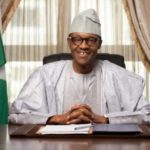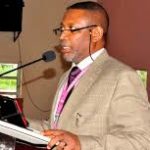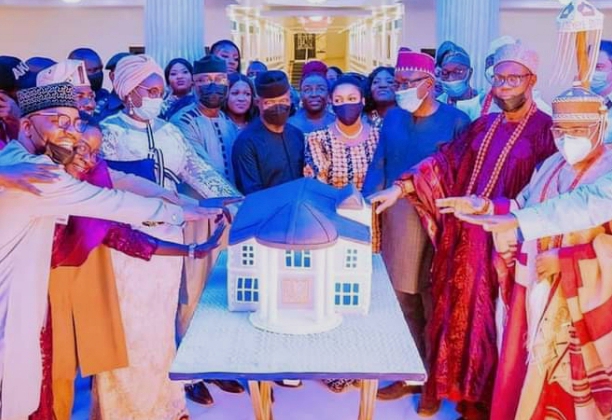…of Inauguration Speech and Ominous Signs
Published
9 years agoon
By

By Femi Mimiko
The inauguration speech of a new President is unique in a number of ways and for a number of reasons. It is the first after a campaign and thus provides the newly-elected President an opportunity to articulate, in a bipartisan (non-partisan) manner, his vision of development for the nation. It is one speech regarded as being from the heart of the man-of-the-moment, knowing that the speech-maker is no longer under the debilitating pressure represented by political hustings. It is untainted by the legendary penchant of bureaucrats everywhere to compel obedience of incoming political operatives to what the former consider the practical realities of governance, defining the transition from Candidate to President, as the case may be. In President Muhammadu Buhari’s (PMB) case, it is a speech that came after four attempts, spanning all of 12 years, at becoming President. It, therefore, cannot be waived off as just another speech. No, it is not. Rather, it allows us citizens’ access into the inner recesses of the mind of the Speaker and serve as a necessary compass for gauging the direction of his government. It is this importance that an Inauguration Speech holds that compelled this intervention of ours.
One was privileged to have read a few commentaries on the speech. US Secretary John Kerry’s and the one by the indefatigable Governor of Ekiti, Ayo Fayose, were patently diplomatic and political respectively. Ebun Adegoruwa and Kayode Ajulo, in separate pieces, both noted that the PMB speech sounded more like a campaign treatise rather than a statement of intent from a newly inaugurated President. I cannot agree with them more, but there are also some quite profound features of the speech which they did not see or fail to mention. I wish to call attention to these in the context in which they represent, for me, ominous signs from the throne of power.
Mr. President set the tone for his speech by suggesting that his would be the first ever democratically-elected government in Nigeria, or perhaps since 1999. According to him, ‘we have today a truly democratically-elected government in place’. The sense in this is that not since 1999 had we had a ‘truly democratically-elected government in place’. I doubt if even the most critical observers of our electoral process these past years, bumpy as it is, would agree with this narration. The culture of our politician not to accept defeat and put down any election in which they are not favoured as rigged is definitely what is abroad here. Above all, there is what sounds like a tinge of megalomaniac therein, which if it is correct, is quite ominous. One would have expected Mr. President to accept the facts of history even where such do not seem to favour him, in this instance that he actually lost those earlier elections he was referring to.
Perhaps more importantly, many would argue that the results of the 2015 elections were not uncontentious because the elections were free and fair. Rather, the elections were not contentious because critical players chose to accept the results. To then give the impression that 2015 was not just a free and fair election, but the very first in the history of democratic engagement in the country is again, quite ominous.
This is where the decision of former President Goodluck Jonathan to concede defeat is critical. Indeed, one of the two great things about the PMB Speech are its very brief nature, and the great tribute it paid to the former President who in spite of the evident limitations of the election was quick to concede defeat. Those who sought to belittle what the man did by insinuating that he had no choice anyway, or that he was threatened to so do, I am sure would have gotten better educated by PMB’s own analysis of the issue, I think a day before he was sworn in. It was to the effect that GEJ had a choice as he could have made the entire transition process quite messy. At worst, he could have chosen to be the fall-guy, in the event that he failed to retain the prized stool for himself. He could have played Samson in the Bible who decided to bring down an entire edifice with himself. That GEJ chose not to do this in spite of obvious temptations is worthy of celebration. He has led Nigeria on its first critical step to what Larry Diamond called ‘the two turn-over rule’ by which democratic consolidation is measured. In celebrating GEJ on this score, I think, more than anything else, PMB elevated himself.
Now, whether the ‘act of graciously accepting defeat by (an) outgoing President’ would ‘become the standard political conduct in the country’ as hoped for by PMB in his Speech, it must be said, is totally in the hands of the President to determine being the next in line that has an election to face.
It is intriguing why PMB chose to make a distinction between those who voted for him and those who did not. It was uncalled for. It was distractive and greatly detracted from the profundity of the Speech.The truth is that his victory notwithstanding, President Buhari is in to preside over a deeply divided nation. Yes, the President won resoundingly in the North, especially in the Northwest with those heavy figures. He managed to scrape a victory in the Southwest, but lost comprehensively in the entire East (Southeast and South-South). In the circumstances, Mr. President has a duty, and he must discharge this as quickly as possible, to bring the nation together. And so, these are not times to begin to make a distinction between those who voted for him and those who did not. That is as unnecessary as it is divisive. It is perhaps the only context in which his ‘I belong to everybody …’ line would have been apt, not in the sense in which he used it here as we shall indicate presently.
In the ever-present desire to draw blood, many Nigerians and of course their news media celebrated with much glee the assertion by the President that, ‘I belong to everybody and I belong to nobody’. That would seem to have resonated well with a large number of people, making it perhaps the most quoted aspect of the Speech. Yet, looked at more critically, this assertion, I make bold to aver, does no service to the cause of democracy in our land. Now, I guess most people who felt good about that aspect of the speech imputed it to mean a reference to the godfather(s)in APC. While this intervention does not in any way constitute an endorsement of ‘godfatherism’ in politics, or better still the ‘godfathers’ in reference, it calls attention to the fact, as adumbrated by Phillipe Schumpeter that every democracy is ‘pacted’. It is every time and everywhere a pact between several tendencies and constituencies,.
This is particularly applicable to the elites in politics, some of whom may have the structures, funds and the grit but not the candidate for an election and vice versa. The truth, therefore, is that Buhari’s adumbration, populist as it may seem, gives an idea of a man who found some group’s structures useful in attaining power only for him to want to quickly disown same. Recall that in spite of the much-trumpeted cult followership the President as candidate was supposed to have in the North, he ran for this office and lost on three consecutive occasions. And then, he found comfort in the political machinery of some other tendencies that made him win at his fourth attempt. He, therefore, in good conscience cannot now plead for and seek to occupy the moral high-ground and play an ophan. For, the truth is he, like most political office holders in all climes and in all ages, is owned.
What he should seek to do is not to disown the platform that made him President, and so early at that, but to find a way to carefully navigate such that where the particularistic interests of that political machine is at variance with the nation’s, he casts his lot with the latter. Anything short of that would be opportunistic. It would not augur well for stability and growth of democratic institutions in the country.
As well, putting down the structure by which President Buhari climbed onto power strictly to the number of votes he got in the Southwest, as some have tried to do, is fraudulent, at best unimaginative.
For, the truth is that the reverberations of the endorsement PMB received in the Southwest by this tendency, whether it was deserved or not, went beyond the geo-political zone and must have served to improve on his electoral figures considerably. The bottomline to all of these is that ascension to political office through elections is ultimately a product of group packaging. If it is not a national coalition, it may be business-oriented. It may be narrow ethnic or religious constituencies. An elected President can then not come up soon after his election and deny the existence of such. It is, I repeat, neither good for democratic stability nor the growth of democratic institutions. This is not to suggest that any President should be in the pocket of anybody, but it is inappropriate to give the impression that the elements by which an electoral victory was secured are no more useful, for whatever reasons, soon after the election.
PMB’s position on local government administration (LGA) is at once at variance with the 1999 Constitution of Nigeria, and patently disdainful of the popular wish on this subject. This wish had been so clearly expressed – first in the process leading to the last Constitution amendment exercise in which a majority of the states threw out the suggestion that LGAs should be autonomous, and of course the National Conference which did the correct thing by placing LGAs squarely at the feet of the states as is the case in every federal system. At best, Mr. President’s adumbration on joint account committees (JAC)is ahistorical.
It neglects our collective experience of the bungling of the mandate to pay primary school teachers by the LGAs. This is why the NUT remains a strong voice against the inanity called LGA autonomy in the federal system. Any move in the direction of so-called autonomy, therefore, must be seen correctly as an attempt to further strengthen the central government, now not just against 36 weak states, but a plethora of 774 LGAs! This is not the promise of federalism, and methink any thought in that direction should be dropped for a more imaginative way of helping the states in building the capacity of the LGA system which must strictly be under their control and supervision.
Although delivered in a very innocuous manner, PMB’s warning to the media in that speech is ominous. According to him, the media must begin ‘to exercise its considerable powers with responsibility and patriotism’. While I agree with the general outline of that, especially given the level to which otherwise serious media agencies degenerated in the last election, it is not for the President, especially one that has a history of media intolerance, to decree. Pray, who decides the boundaries of responsibility and patriotism? I doubt if it is Mr. President.
The lot should perhaps fall on the judiciary to rein in the media. Immediately the executive arm begins to covet this role, as PMB would seem to be doing, it amounts to ‘a handshake beyond the elbow’. Recall that it took the intervention of his Party against what looked like PMB’s move against AIT soon after the election for him to drop his move against that media organisation. The new President obviously did not realise that he was not doing AIT or indeed any media agency any favour by opening his activities and himself for reportage. It is simply a constitutional duty and anything at variance with that would amount to a violation of the Constitution. It is understandable that in the frenzy for change everywhere, our media practitioners have not bothered to pay attention to this latent danger to free press. Yet, the danger signs are there for those who care to look more closely and sombrely.
The suggestion by the new President that his work would not be done if he did not rein in the state governments is another dangerous sign that needs to be called attention to. The intendment of the framers of the 1999 Constitution is clear. In spite of its overt unitary orientation, the pretention to federalism notwithstanding, the Constitution did not envisage a President that would be a headmaster to the states. Powers are supposed, in the true spirit of federalism and in the immortal words of KC Wheare, to be equal and coordinate. For the President to give the impression, therefore, that his own work would not have been done if he did not breed down the neck of elected governors is ominous. The promise that the Executive ‘will not seek to encroach on the duties and functions of the Legislative and Judicial arms’ is reassuring. But again, we need to wait and see if this commitment would be calibrated.
Mr President’s postulations on power, on Boko Haram, and on the Chibok girls sounded more like a sermon, bereft of any concrete policy take-home. Indeed, it is noteworthy what the President said about power: ‘Careful studies are underway during this transition to identify the quickest, safest and most cost-effective way to bring light and relief to Nigerians’. He also intends to ‘quickly examine the best way to revive major industries and accelerate the revival and development of our railways, roads, and general infrastructure’. Alas, these do not fulfil our expectations from a man that had pushed for 12 years to be President! How we are going to tackle the ‘enormous challenges’ we face at home should have been the dominant theme of the Speech. Even a hint at this would have been enough.
The appeal to the unions should have gone the whole hog and call on their sense of patriotism to forget, for some couple of years perhaps, all forms of industrial disputes (strike action) that have turned the nation into a laughing stock.
Mr. President’s venture into the realm of diplomacy was misdirected, at best. PMB proclaimed, with the majesty of an unassailable king that is perhaps vintage Nigerian, that our country ‘will be ready to play any leadership role that Africa expects of it’. This is not only patronizing, but is completely out of sync with the reality on ground in relation to the structural weakness of our nation. The truth is, hardly is Nigeria today capable of any significant individual action in the global arena. It would, therefore, have been enough to pledge commitment to all of those issues of interest to Africa in the international arena, rather than making a declaration predicated upon a manifest destiny the basis of which is suspect and has been variously called to question by our legendary refusal to do the needful domestically.
Overall, Mr. President’s Inauguration Speech fell far short of expectations. Critical issues relating to the economy in particular were not addressed in a frontal manner. Indeed, there was hardly any take-home for most Nigerians who anticipated change. And because it was so bereft of any specific policy proclamation, the Nigerian press decided to raise the passing reference to relocation of the tactical headquarters of the war on terror to the level of a policy. And so, it went ahead to report that PMB had relocated the facility to Maiduguri, which by that Speech he was yet to do.
Against this general backdrop, it is clear the Inauguration Speech was not profound enough. It obviously did not benefit from the electoral war-hardened apparatchik of the APC. I would be surprised if it benefited from the cerebral fibre of a Yemi Osinbajo, the articulation garb of a Kayode Fayemi, the gallery-focus of a Lai Mohammed, the populism of a Nasir el-Rufai, the statecraft of an Abubakar Atiku, or the sharp political instinct of a Bola Tinubu. The truth is, APC has to sit up, take charge and give direction to the President it got Nigerians to elect in such a way that its tenure would not at once undermine democracy and destabilise Nigeria. It is in this specific sense that we see PMB’s reference to the Amnesty programme. Yes, this may not be the best of programmes in terms of conception and implementation, but it served the purpose for which it was floated. Against the backdrop of expressed concern in the creeks of the Niger Delta over its survival under PMB, one would have expected the new President to come up with a well-articulated alternative and get the buy-in of the stakeholders before making a statement on its termination. Again this is quite ominous.
On a final note, against the backdrop of insinuations that he tends towards religious zealotry, abandoning his guest to attend a prayer session was not something the new President should have done on his inauguration day. Come to think of it, this was Mr. President’s first official diplomatic outing. That he would rather abandon his guests for a religious event is suggestive. It is not good enough. The whole Inauguration should have been better arranged for one programme not to clash with his jumat commitment. Walking out on guests the way our President did diminished Nigeria. Efforts must be made very quickly to remedy this very bad signal.
– Mimiko is a Professor of Political Science at the Obafemi Awolowo University, Ile-Ife

You may like
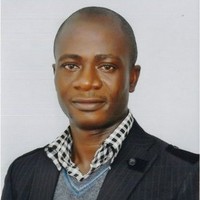
A Phenomenon at 50
Hitting the age of 50 is a landmark and a milestone to be celebrated. Fifty years and still counting, Aremo Olusiji Balogun, is a phenomenon and a case study in humanity.
He is an Associate Member, Chartered Institute of Personnel Management in Nigeria among others. He is the Founder of Ase Youth Association and several other organisations.
His company Promec Innovative Concepts was a child of necessity when his attempt to register Prince Royal Media Concept (Promec) at the Corporate Affairs Commission (CAC) met a brick wall.
Olusiji Balogun is a media guru and an organizational growth and business development expert with adaptable skills. He is able to use own initiative or work as part of a team. An efficient and effective Human Resources Manager, community worker, excellent communicator at all levels within and outside organizations; he has good problem solving and analytical skills with pioneering spirit.
Olusij’s specific interests include teaching and learning for new product development, business development, participatory social activities, keen insight into the needs of others and with high energy, initiative and focus, proven leadership skills including managing and motivating others to achieve objectives.
An effective community and social worker, he is fluent with information technology and capable of handling executive assignments and leadership. His other qualities include being positive with potential ideas, he has the ability to work with anyone under any condition or situation and contribute greatly to achieving the best goals of the establishment.
Oluwasijibomi Gideon Balogun was born on the 8th September, 1972 in Ondo town to the family of Samuel Olusegun Balogun and Mrs Grace Remilekun Balogun of Ase Akoko in Akoko North West Local Government Area of Ondo State. Both parents are retired Civil Servants. Olusiji was raised up with strong Christian virtue.
He had his early education at St. Luke’s Primary School, Akure but finished at Muslim Primary School, Ikaram Akoko, all in Ondo State, where he obtained the First School Leaving Certificate. He subsequently earned his West African Senior School Certificate in 1990 after attending Omoluorogbo Grammar School, Akure before proceeding to Ala Community Comprehensive High School, Ala-Elefosan, Idanre Local Government Area of Ondo State.
He also attended the Institute of Journalism and Nigerian Institute of Journalism, (NIJ), Akure Campus for his Diploma in Journalism and Public Relations, after a sojourn at Federal University of Technology, Akure (FUTA) briefly in the Institute of Science Laboratory Technology. He also went to Akwa-Ibom State Polytechnic, for his Higher National Diploma in Business Administration.
He later proceeded to the Ambrose Alli University, Ekpoma, Edo State for his Bachelor of Science Degree in Public Administration.
He is a Member of various professional bodies.
After leaving school, Olusiji started working as a freelance Journalist and Printer. He started Eminent Leaders Magazine in 1996 and registered Prince Royal Media Concepts with Corporate Affairs Commission (CAC), in 1999 which he upgraded to Eminent Leaders World Communications Limited publisher of Eminent Leaders magazine.
He worked with several organisations where he left indelible footprints of punctuality, hard work and professionalism. He worked with Mentors Communications, Abuja in different capacities. At Mentors Communications, he was the pioneer Editor of Rootswatch Magazine. He was Technical Assistant to the Managing Director of Quarry Managers Company in Abuja, headed by the late Abdulhakeem Amao. He was Special Event Manager with ITAD/MotMacdonald/PWC in Calabar and Water Supply and Sanitation Reform Programme (WSSRP) in Abuja. Both projects under the Integrated Water Resource Management European Commission.
He also had a stint with Hatlab Delight as a Business Development Manager and Head of Administration, O.T. Otis Engineering Limited. He resigned his appointment with Successory Nigeria Limited, Abuja, as Head of Project Management, in year 2019 to move his outfit forward.
Olusiji Balogun experience in politics is vast. His team helped installed Olusegun Agagu and Olusegun Mimiko as Ondo State Governors. He was the nucleus of Olusegun Mimiko Campaign Organisation for his second term when he was Editor of Grassroots Vanguard Newspaper of Grassroots Network.
He attempted to contest for the coveted seat of Ondo State Governor in 2020.
His experience in administration is versed as he is an Associate Member, Chartered Institute of Personnel Management (CIPM), Full Member Institute of Professional Administrators and Managers (IPMA) and many other professional bodies. He is a partner in many companies and Chief Executive Officer of Promec Innovative Entrepreneurship and Science Academy (PIESA) and several other firms.
He currently has his hand in farming as he started Ase Farms Nigeria Limited, asefarms.com.ng.
His hobby includes travelling, reading, surfing the internet and adventures.
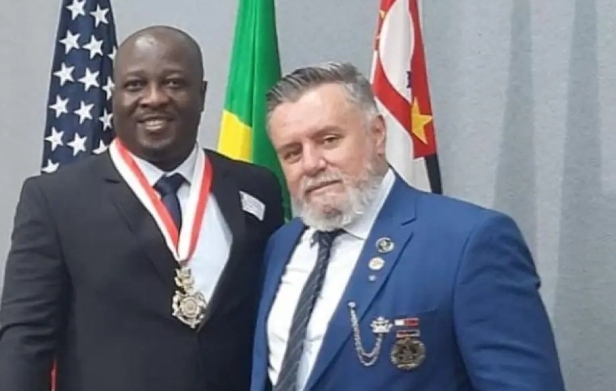
Ambassador Bayo Lawal Appointed American Diplomatic Representative in Brazil Ambassador Bayo Lawal, is truly a chip off the block. Born in Osogbo, Osun State of Nigeria, into the royal house of Olumodi Oyipiloye and Asuni Compound (Maternal) Osogbo. Bayo Lawal has become the first Nigerian to receive an American diplomatic status in Brazil. At a diplomatic ceremony held on the 17th of December, 2021 in the executive auditorium of the State Legislative Council, Saopaulo , Brazil, the American Government, through its Diplomatic Mission of International Relations (ADMIR) sworn In Ambassador Bayo Lukman Lawal as one of its appointed diplomatic representatives of the American diplomatic mission in Brazil. The humanitarian and diplomatic mission , which for the first time, included a Nigerian living in Brazil, inaugurated other important personalties in Brazil as members of its humanitarian project scheduled for Africa and Europe in the year 2022. Bayo Lawal is from a royal and polygamous house where hardwork is the hallmark. Though born by a successful business man popularly known as “Were Nise Oluwa”, Bayo Lawal has been a focused, hard-working and persevering youngman. His stint with the Osun State Board of Internal Revenue after his days at The Federal Polytechnic, Offa, set him in a progress pedestal. At the Board of Internal Revenue, his hardworking nature, made him a darling of all. Ambassador Bayo Lawal, before leaving the shores of Nigeria, originated the idea of honouring women in Nigerian society in 1999, tagged “Women Entrepreneur Merit Award” organised by Spotlight Media Ventures. He was then the PRO and Reporter for the firm. Ambassador Bayo Lawal and other personalities like the notable former Brazilian football captain, Capitão Cafu , the Saopaulo State First Lady, Mrs. Bia Doria, the Director of Federal Police, the Honorable speaker of the House of Assembly in Saopaulo , Representatives from several African and European countries witnessed the event. According to the President of the mission in Brazil, Dr. Fernando Navarro, the principal function of the American diplomatic mission of International relations is simple, it is humanitarian, it is helping to make the world a better place to live, he said the mission is to combat hunger and help the needy. Ambassador Bayo Lawal, who has lived in Brazil for over twenty years has worked in different functions in the international relations, he is an administrator who has led his team of excellent professionals within and outside Brazil. He is the presently the CEO of Mab Consulting Services, an International Trade and Business Development company with spread in the South America, Africa, China, USA, Europe and UAE. Bayo Lawal, who served as a Business Consultant at Grupo Empresarial Costa Negocios, taught courses in several English Schools in Sao Paulo, Brazil. He was Business English Teacher For Executives between 1999 – 2014. He worked at the Costa Negocios Group, FGV Projetos, Bimex Comercial Ltda., and many others. In his interview with Heritage news, Ambassador Lawal said “I am dedicating my achievements in Brazil to the Almighty God and also to my late parents, Prince Yekeen Lawal and Mrs. Bolanle Lawal. I also owe this success to my family in Brazil , my friends and colleagues who are always by me.” Ambassador Bayo Lawal said he is ready to work with all humanitarian organizations in Nigeria and overseas, using his office as an ambassador to help better the standards of every Nigerian, African immigrants in Brazil and around the world. He promised to lead projects of housing estates to Osogbo and other necessary locals in Nigeria.Ambassador Bayo Lawal is married to an Italian descendant Brazilian, Mrs. Sara Guerino Lawal and blessed with three children; Nathalie Mariam Oyenike Lawal, Derick Afeez Oyewale Lawal and Allan Khalil Babatunde Lawal.
DR TOLULOLA OLAJIBIKE BAYODE OPENS THE BIGGEST HOME FOR THE LESS PRIVILEGED IN AFRICA
Published
2 years agoon
December 28, 2021By
Iyalaje Tolulola Olajibike Bayode was born in Akure and hails from Oba-Ile. She’s the daughter of Chief Joseph Bayode and Pastor Mrs Bayode.
Tolulola Olajibike Bayode, RN, BSN, MD, is a trained medical professional but with an unusual passion for the well-being of the less privileged. Having travelled far and wide,Tolulola share an uncanny obsession of giving abandoned children and widows another shot at life,employing both her professional training and God given resources in assisting the less privileged at will leading her to initiating Dorian Home for Displaced Children & Mothers Initiative.
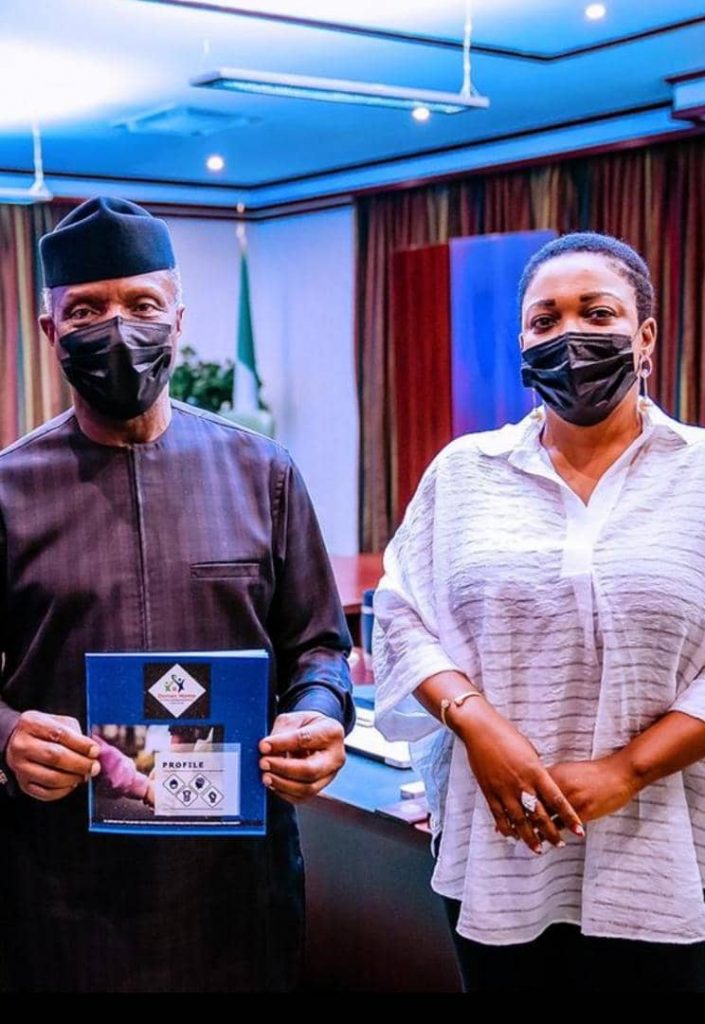
The African Union Economic, Social and Cultural Council appointed this Akure born philanthropist Dr. Tolulola Bayode as Head, Social Affairs and Health Cluster Committee. The job description entails implementing the overall goals of the Health, Humanitarian Affairs and Social Development portfolio in line with the AU Agenda 2063, Sets annual performance targets for the Health, Humanitarian Affairs and Social Development portfolio and report on annual progress to Specialized Technical Committees and AU Policy Organs.
In 2009, Dr.Bayode established Dorian Home for Charity and Social Development as a Non-governmental Organization (NGO). She’s the CEO/ President. Her personal encounter and experience in the course of discharging her professional duties, most especially in the Internally Displaced People’s (IDP) Camps, Community/Rural Medical Outreach programs, just to mention a few, afforded her a first-hand and comprehensive understanding of the plethora of unsavoury plights of women and children in our society.
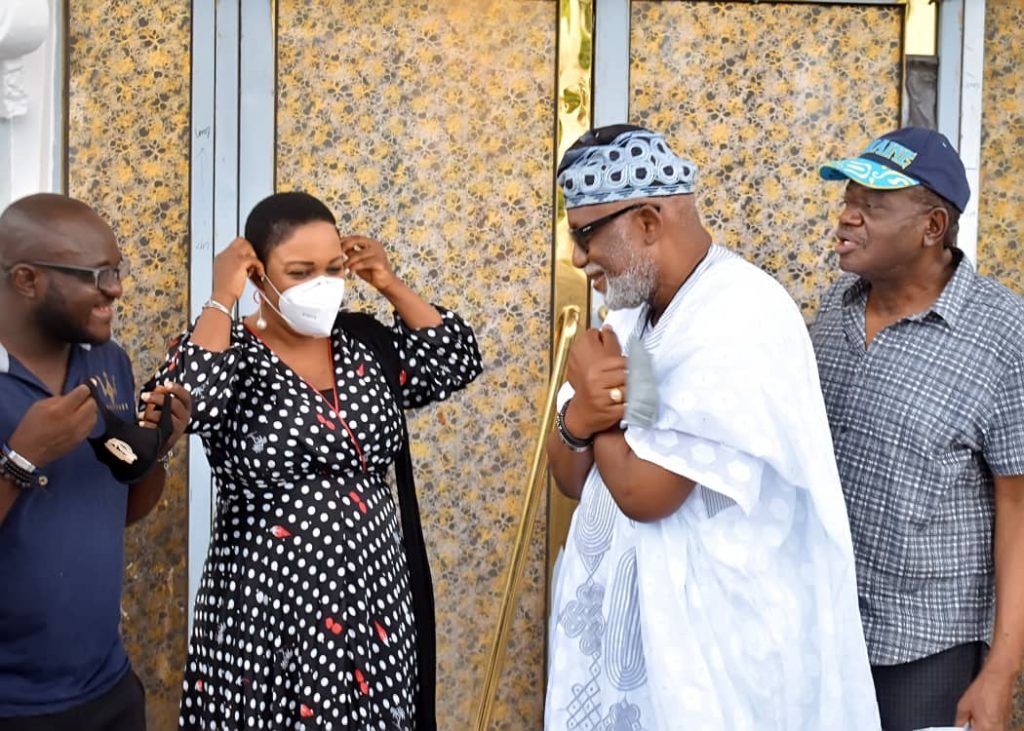
Dorian Home is the biggest orphanage home in Africa, consisting of 700 homes for children,500-capacity skill acquisition centre for women, large hall for events, modern clinic and a worship centre. Dorian Home for Charity and Social Development is situated at Akure, the Ondo State capital.
Described as the biggest orphanage home in Africa, the ultramodern facility worth $5million and was finally commissioned on the 14th of October 2021.
Dorian Home is not limited to taking care of just abandoned babies and widows but also focused on research, training, empowerment and mobilize women towards self-emancipation. A glamorous persona imbued with the philosophy of giving hope to the hopeless, creating a better living condition for the abandoned, Tolulola is in the forefront of Safe Haven Law in Nigeria – the leaving of unharmed infants with statutorily designated private persons so that the child becomes a ward of the state with proper upbringing.
At the commissioning of the home, Professor Yemi Osinbajo, the Vice-President of Nigeria, called for the provision of adequate welfare for vulnerable children and women in the society. The vice president commended Bayode for making provision of the basic needs of homeless children and women her passion. He said that about nine per cent of Nigerian children were homeless; a figure Osinbajo said seems to be growing rapidly. The vice president, however, called on well meaning Nigerians to join hands with the government to provide adequate care for the homeless children, saying that government alone could not do it. Osinbajo described the laudable project as one that would stand the test of time for the less privileged and empowerment for women in society.
During her speech, the Founder and President of Dorian Home, Dr Tolulola Bayode, said that vision of the project was about leaving a legacy of hope for the orphaned children, widows and less privileged women in the society. According to Bayode, reality dawned on her after the shocking demise of her elder brother, the purpose of man on earth is to touch life and uplift humanity. Bayode said the covenant she had with God to have the home was based on her love for humanity, widow, indigent and displaced children to live a better life. She also appealed to the government to provide adequate security checkpoints along Akure/Idanre Road, adding that the future of any child should not be toiled with. She emphasised that not that she has the resources but has a heart of giving.
Represented at the ocassion, was the governor of Ondo State represented by his Deputy, Mr Lucky Ayadatiwa, who said that the project compliment the administration’s REDEEM agenda of Arakunrin Oluwarotimi Akeredolu. He commended the Founder of the home for her initiative. Akeredolu described the project as unique because it focus on the neglected section of the society. Akeredolu said the project would receive the support and patronage of the state government. He said the state government would continue to support the social initiative programmes of the Dorian Home.
Also, speaking at the ocassion, Senator Tayo Alasoadura, the Minister of State for Niger Delta Affairs, urged people to emulate the kind gesture that counts for the good of humanity by trying to make the society a better place for humanity. Alasoadura said that Nigeria would be a better place, if everyone tried to provide a home like heaven on Earth, especially for the displaced and indigent children, just as the orphanage.
Tolulola Olajibike Bayode, as a natural social and talented care giver has continually provided training, education and health consultations in the non-profit entrepreneurial sector to youths in different parts of the world and has successfully maneuvered the delicate balance between dedication to mission in a wide range of settings. Aside her passion for the creating a better living for commoners, she has years of extensive managerial experience in the non-profit sector, with outstanding records in getting initiatives off the ground and flourishing.
Trending
-
13 years ago
ALL ABOUT GENERAL MUHAMMADU BUHARI
-
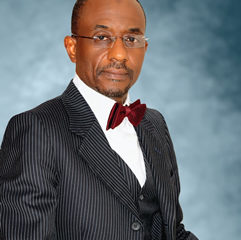
 11 years ago
11 years agoProfile of Sanusi Lamido Sanusi
-
11 years ago
Profile of Tolulola Ajibike Bayode
-
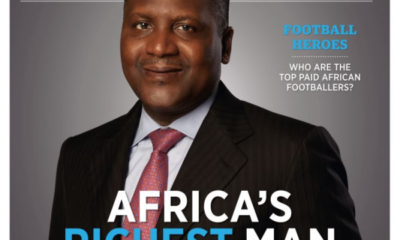
 11 years ago
11 years agoProfile of Aliko Dangote
-
13 years ago
OUTSTANDING NIGERIANS IN 2010
-
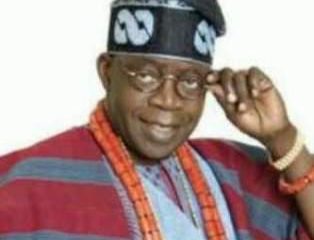
 5 years ago
5 years agoProfile of Senator Bola Ahmad Tinubu
-
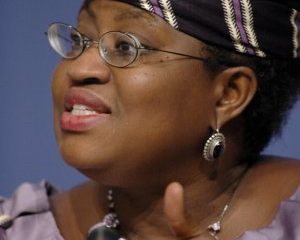
 5 years ago
5 years agoNgozi Okonjo-Iweala -Profile,about her,family and work.
-
5 years ago
20 Most Outstanding Nigerians in 2018

